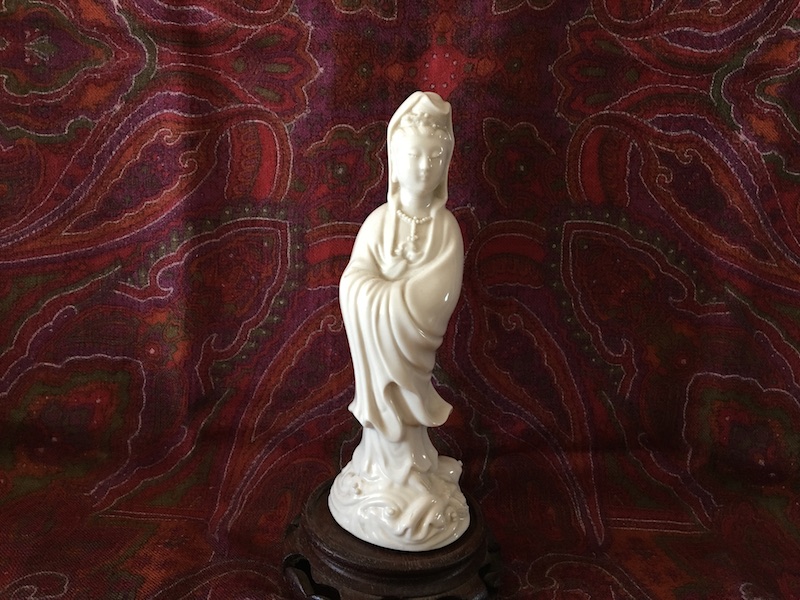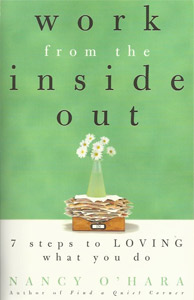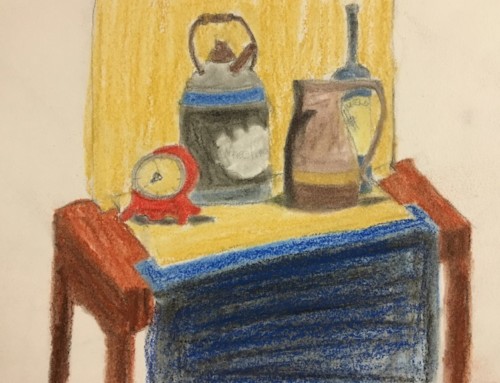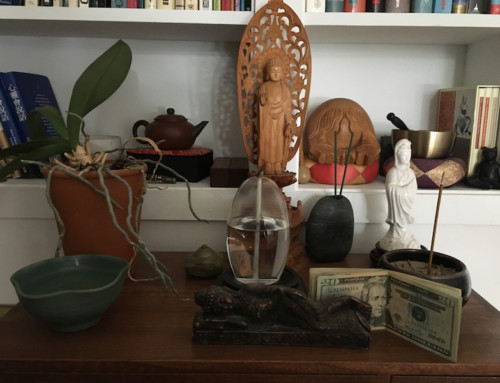…continued from Using Envy to Reach Your Goals
For a moment let’s look at the natural law of cause and effect and its impact on our everyday lives. For every action there is a reaction. Anytime we take an action (cause) something happens (effect). This is not a difficult principle to grasp. But sometimes we get so focused on what we want to happen or expect to happen that we miss the real effect altogether. Or worse, we do not take responsibility for the effect because it differs from the way we envisioned it, or it occurs so long after the fact that we refuse to see a causal connection.

Quan Yin – Bodhisattva of Compassion
As we have learned, desire is the first cause of disillusionment and disappointment. This unquenchable thirst causes us to exert our will to get what we want, but this exertion of will always has consequences—consequences that we are responsible for. These fruits of our actions are, relatively, either good or bad.
A good action produces a good effect; a bad action, a bad effect. This has nothing to do with moral judgment or reward and punishment. It is simply a straightforward manifestation of the law of cause and effect. And sometimes the results can be life-altering.
Tricia’s Example
A series of volitional actions (cause) cost Tricia her job (effect). (We will not define any of what transpired here as good or bad, as everything is relative, and perhaps Tricia’s job loss will in the end be a good thing for her.) Tricia worked as a manager for a large hotel chain overseeing the housekeeping staff, which was part of a large union. Because of the service nature of the business and its close contact with the public, there were many rules and regulations that the staff was required to follow. And it was incumbent upon the managers to enforce these rules.
One such regulation was that female room attendants wear panty hose under their uniforms. Tricia suspected a room attendant of flouting this requirement (she had just asked her to remove some jewelry that was also against regulations) because when asked to change, it took less time than Tricia thought it should. So Tricia lifted up the room attendant’s dress to see for herself. This volitional action had consequences that only Tricia is responsible for. It is irrelevant here whether the room attendant was abiding by the rules or not. What is relevant is that when Tricia lifted up the uniform (her volitional action) she should have known that she was flagrantly abusing the strict codes that regulated her own behavior as a manager.
The union got involved, of course, and management was called in. Tricia was given an opportunity to apologize for her behavior in a small forum. But she was willfully defensive, and her meek apology was clearly insincere. The apology wasn’t accepted, things escalated and Tricia was given another chance to make amends to a larger group, but her stubborn pride kept her from it. Management was then forced to terminate Tricia, who sees herself as a victim and self-righteously points to the room attendant for causing the problem. What she can’t see yet is the clear cause and effect scenario, stuck as she is in the haze of self-justification. But her actions (cause) were clearly responsible for getting her fired (effect).
Tricia will either slip even deeper into bitterness and resentment (which will affect her future employment possibilities) or use this experience as a stepping-stone to personal awareness and growth. She may decide that managing others is not her forte, or she will learn how to be a more compassionate and fair manager in the future. Whatever she decides, in order to be happy in her work life she must first take full responsibility for her part in the drama.
_________________________________________________
- Do you take responsibility for all your volitional actions? Or do you see yourself as a victim when something goes wrong and as a hero when things go right?
- Describe an incident at work that you feel went badly. Go back to the beginning and objectively look at your behavior all along the way. Where did you try to exert your will? Were you able to detach and let things take their natural course or did you attempt to interfere and try to control the outcome?
- Now describe an incident that ended up going well. Ask the same questions as above.
- In both cases can you see the principle of cause and effect operating, whether the result was good or bad? Write about this.
_________________________________________________
A normal response to accepting the truth that good actions create good effects and bad actions bad effects is to decide to only engage in good actions that will create good results. But this stance can get us into trouble. These good results can stimulate our craving for more good results, which will send us off into the world of more that is never satisfied. So perhaps it’s time to look at the alternative.
First we must come to an understanding that any volitional action, good or bad, simply keeps us caught in the cycle of desire and attachment. When we realize this we can move toward simply accepting things as they are. Sometimes things happen. Sometimes no one is responsible. It is just how it is, the way things go, life on life’s terms. This doesn’t mean that we should sit back and do nothing. For it is only when we take volitional actions—or those driven by self-will—that we get into trouble and cause ourselves pain. Actions taken with a pure heart and not attached to self-aggrandizement are simply actions taken. They are not subject to the usual consequences. Rarely do we suffer from the effects of such actions. We simply take in stride whatever the outcome is.
When we refrain from self-destructive volitional actions, we do the best we can and accept what comes. We detach ourselves from the wheel of desire and let ourselves just be. Only then do we experience peace and harmony no matter what happens around us.
To be continued…
from Work From the Inside Out – 7 Steps to Loving What You Do







Leave A Comment